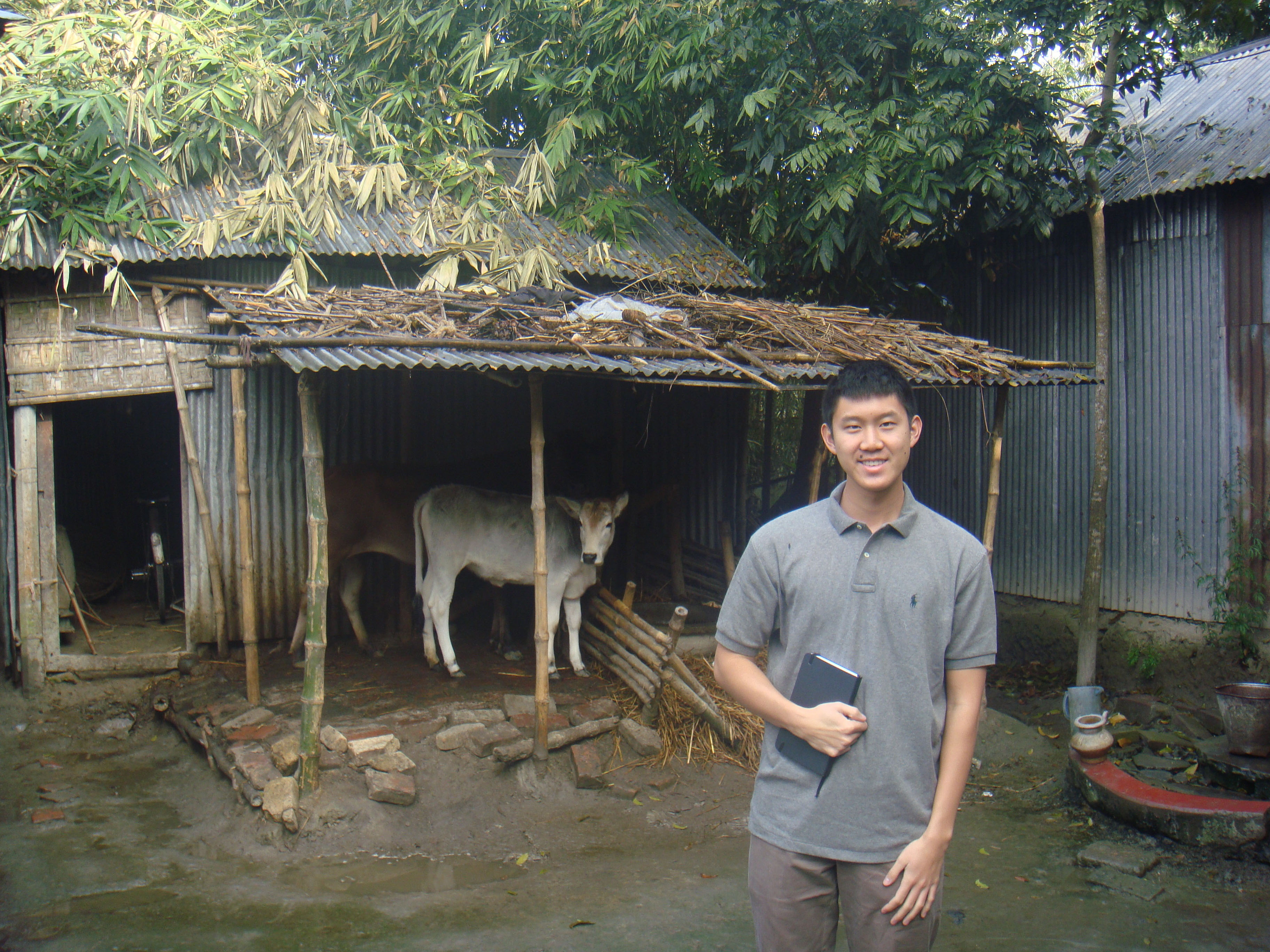April 24, 2012 — University of Virginia first-year student Daniel Ng's proposal to build community playgrounds in village schools in Bangladesh recently won a Facebook-based competition run by the world's largest nongovernmental organization devoted to education and community development.
Ng's idea beat out more than 40 entries from around the world to win the BRAC Innovation Challenge, which sought community development ideas that could be implemented by Bangladesh-based BRAC, the largest development nongovernmental organization in the world, with a $500 million annual budget.
Ng visited Bangladesh earlier this year with a U.Va. January Term class on social enterprises, led by Brad Brown, a professor in the McIntire School of Commerce.
The class visited a number of schools and programs that BRAC operates. BRAC, launched in 1972 as the Bangladesh Rehabilitation Assistance Committee, runs more than 37,000 non-formal primary schools that educate 750,000 students, along with microfinance banks and other programs that reach more than 110 million people in nine developing countries across Asia and Africa.
Ng's inspiration came from two sources, he said. First, when he visited villages and schools, he noticed children playing in unsafe places, like busy streets and gutters strewn with trash, or running along the nation's ubiquitous irrigation pipes that are often elevated more than 8 feet off the ground. He also noticed the utter absence of playgrounds.
Then, he read about an American non-profit social enterprise, KaBOOM!, that empowers communities to build playgrounds.
He liked the idea of empowering communities to build their own playgrounds, but he knew the American vision of playgrounds, with thousands of dollars in material costs alone, would not be feasible in Bangladesh. Drawing on lessons learned in Brown's class, he looked for solutions that would fit the Bangladeshi context. On the Web, he found examples of playgrounds built in Thailand with repurposed local materials like old tires, logs, barrels, chains and ropes – proof that "great play spaces can be created with very little financial capital," he said.
But he also recalled learning about BRAC's formula for successful projects: start small, start local, work out the kinks, measure performance and optimize before trying to scale up. That formula guided his playground proposal: start in one village with an existing BRAC school, and then observe enrollment and school performance data to see if a playground has any positive impacts on learning or fostering school attendance – a major issue among the thousands of Bangladeshi children who fall out of the formal school system, often for reasons entwined with poverty.
The prospect of a safe place for play would be appealing not just to the students, but also a significant motivator to mothers to bring their children to school, Ng said, noting that "BRAC focuses many of their efforts on women and children."
An interest in measuring success with data like school enrollment is one reason Ng plans to study statistics, along with global development, in U.Va.'s College of Arts & Sciences, he said.
"I am so pleased," Brown said, "because Daniel built his clever idea around all the concepts we emphasized in our class in January: Start small, be local, and be cost-effective. BRAC obviously agreed, too."
"The quality of the submissions we received was very impressive," Asif Saleh, BRAC’s director of communications, said in a press release.
"I was surprised and humbled," Ng said, describing his reaction to the news that he won the BRAC contest.
As his prize, Ng gets "the unique opportunity to work with BRAC's Social Innovation Lab in Bangladesh," Saleh, who also directs the lab, said in a press release.
The prize is a great fit for Ng, who already planned to be in Bangladesh this summer learning Bengali on a scholarship-funded 10-week intensive critical languages program sponsored by the U.S. State Department.
When that program ends in August, rather than returning home to New Jersey, Ng will spend a few weeks with the BRAC Social Innovation Lab. He plans to do some on-the-ground surveys with teachers, children, parents, school administrators and BRAC experts to further test and refine his playground proposal, perhaps culminating with construction of a pilot playground at a BRAC school.
— by Brevy Cannon
Media Contact
Article Information
April 24, 2012
/content/first-year-students-playground-vision-wins-global-innovation-competition

